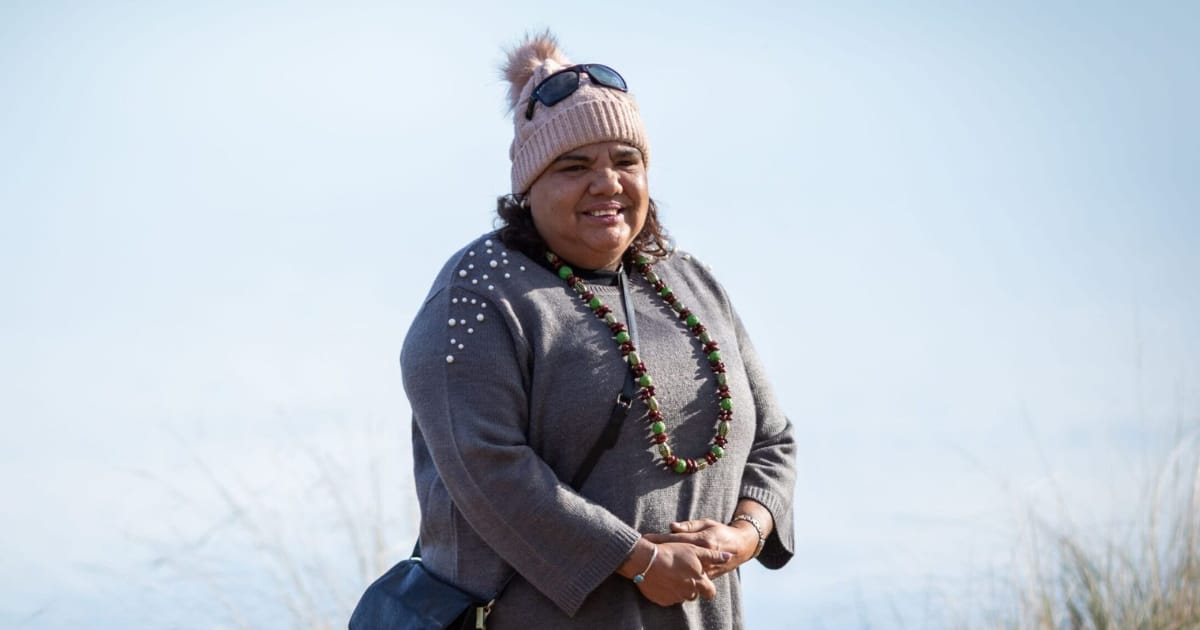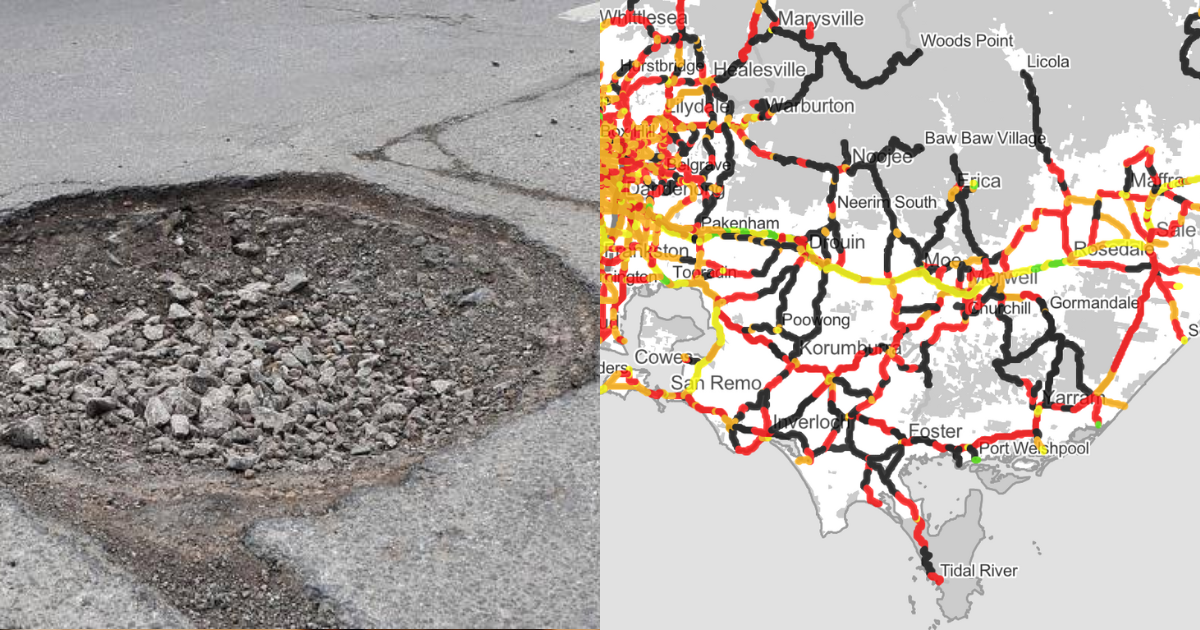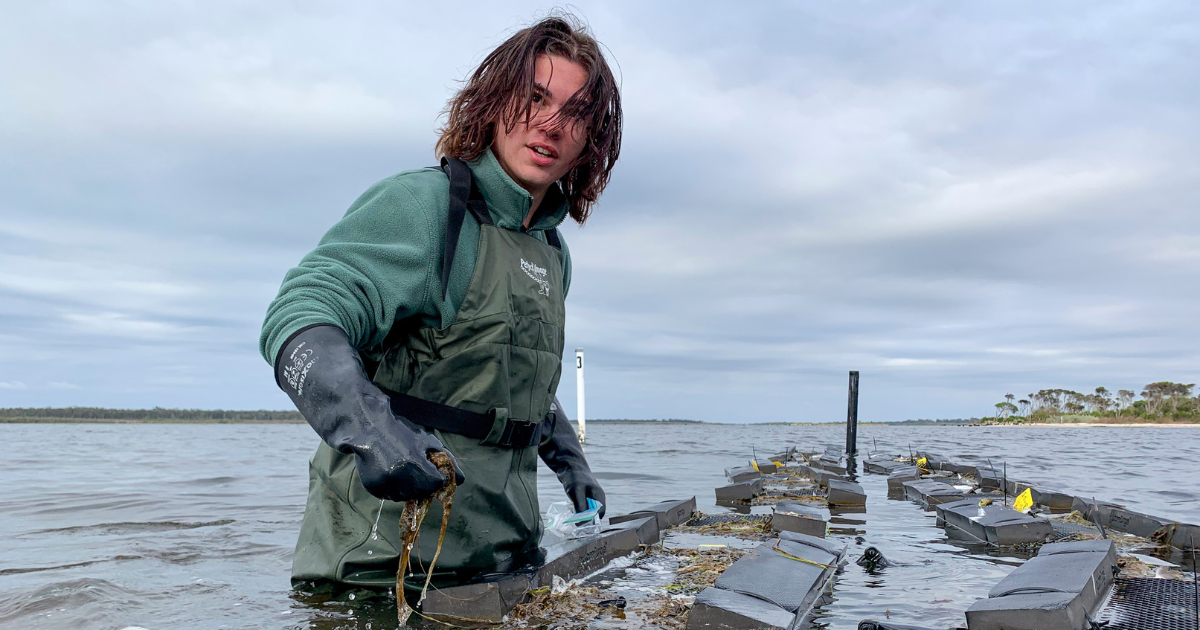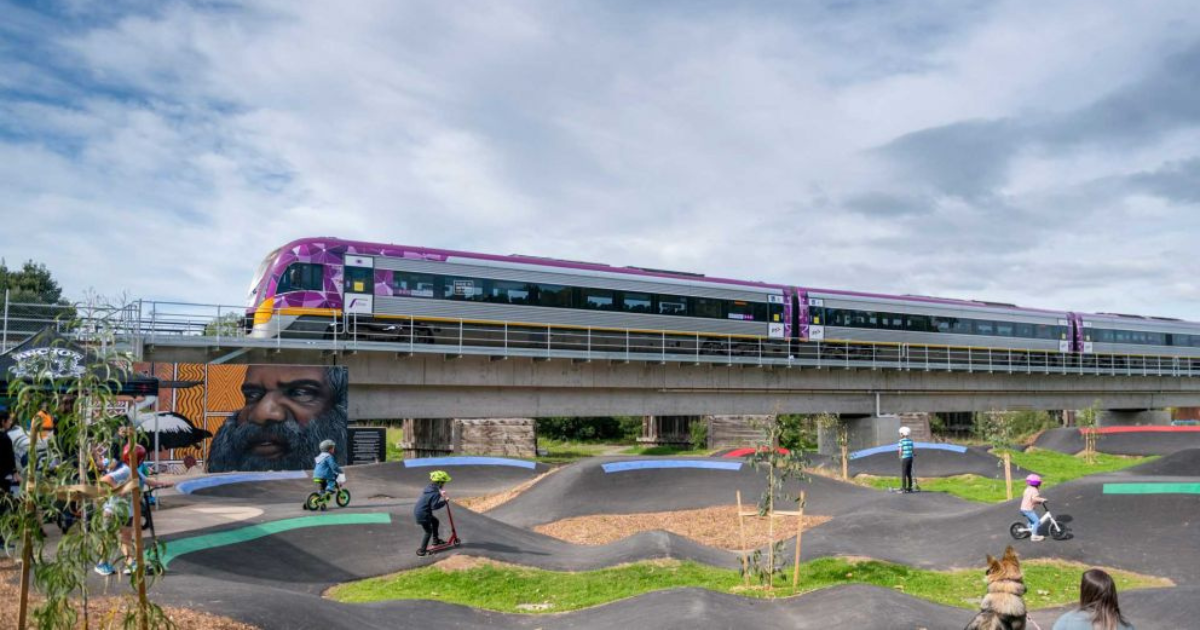“A lot of the rivers have dried up”: Gippsland locals recognised for their commitment to protect the environment
Mine site rehabilitation and energy solutions were both key issues for Latrobe Valley groups.

Two out of seven of the Environment Victoria awards presented in Melbourne on Thursday went to Gippslanders, with a focus on water protection and nuclear power opposition.
What happened: Environment Victoria has recognised the work of community groups and individuals from around the state for their contribution to environmental activism over the last year.
Catching up: Environment Victoria is a state-wide not-for-profit organisation founded in 1969. It now has more than 200,000 individual members.
Gippsland represented: Kurnai Gunai woman Electra Green and the community group Nannas for Action both won awards at the event.
Electra Green won an individual award for her activism on protecting Gippsland’s rivers and waterways.
Nannas for Action won an award last night for drawing attention to urgent environmental issues in Gippsland, including their opposition to a nuclear power plant in the Latrobe Valley.
Work of a lifetime: Green told the Monitor that in her 53 years living in the Latrobe Valley she has watched the rivers and catchments dry up.
Green’s focus at the moment is advocating that energy companies AGL, EnergyAustralia and Engie pay a higher price for the water they are seeking to use to rehabilitate Gippsland’s open cut mine sites.
🗣️ “A lot of the creeks and the streams and a lot of the rivers have dried up, especially around Tyres, Traralgon and Moe,” said Green.
🗣️ “Water is the blood of the land and the veins of the earth. The three power stations we have here dug holes so deep that they have impacted the waterways. It’s affecting our wetlands and salt water is coming up through the lakes – all the fishes and birds and other animals are declining.”
What’s happening with Gippsland’s open cut mines? Gippsland is home to three ageing coal-fired power stations, all of which will be returned in the near future due to age and lack of commercial viability as renewables take over as the cheapest way to generate power.
The state government is currently considering a price range to charge the energy companies looking to rehabilitate the open cut mines in the Latrobe Valley.
Once these power stations are retired there will be three open cut mines requiring rehabilitation: Hazelwood, which closed in 2017; Yallourn, which is expected to close in 2028; and Loy Yang, set to close in 2035.
According to the companies, Hazelwood will require 637 GL of water to fill, Yallourn 630 GL and Loy Yang 1,087 GL. This is an estimated total of 2,354 GL of water that could be removed from the Latrobe Valley river system over three decades.
🗣️“If this keeps happening we won’t have a river system in 50 years,” said Green.
What next?
Hazelwood is currently being filled with water, but Environment Victoria is concerned the water in the pit could become toxic.
Loy Yang: Victoria’s minister for water, Gayle Tierney, is currently considering how much to charge energy company AGL for the water entitlements it needs to fill the Loy Yang open cut mine.
Yallourn: In June this year, EnergyAustralia released its rehabilitation plan to follow suit and attempt to turn Yallourn into a manmade lake.
Nuclear opposition gets the nod: Nannas for Action’s award came for drawing attention to urgent environmental issues in Gippsland, including opposition to a nuclear power plant in the Latrobe Valley.
Catching up: Nannas for Action formed in early 2025 (originally Nannas Against Nuclear) as a response to the Coalition’s nuclear proposal.
The nannas would sit, and often knit, outside of federal member for Gippsland Darren Chester's office in Traralgon once a week, sparking conversations with the local passersby about energy and the environment.
After the election, Nannas for Action expanded. The group continues to hold meetings and advocate for a variety of issues including sustainable mine rehabilitation and shifting to renewable energy in the Latrobe Valley.
Wendy Farmer, a member of Nannas for Action, told the Monitor the group is still meeting up once a week to speak to locals about energy.
🗣️“Nannies bring people together. We invite grandpas, aunties, uncles and kids to join us,” said Farmer.
The group is now being invited to energy conferences around Gippsland to learn about the shift to renewable energy.
🗣️“We think it's so important. We're a very connected community so having that safe space to be able to ask questions if you want to is so valuable,” said Farmer.


